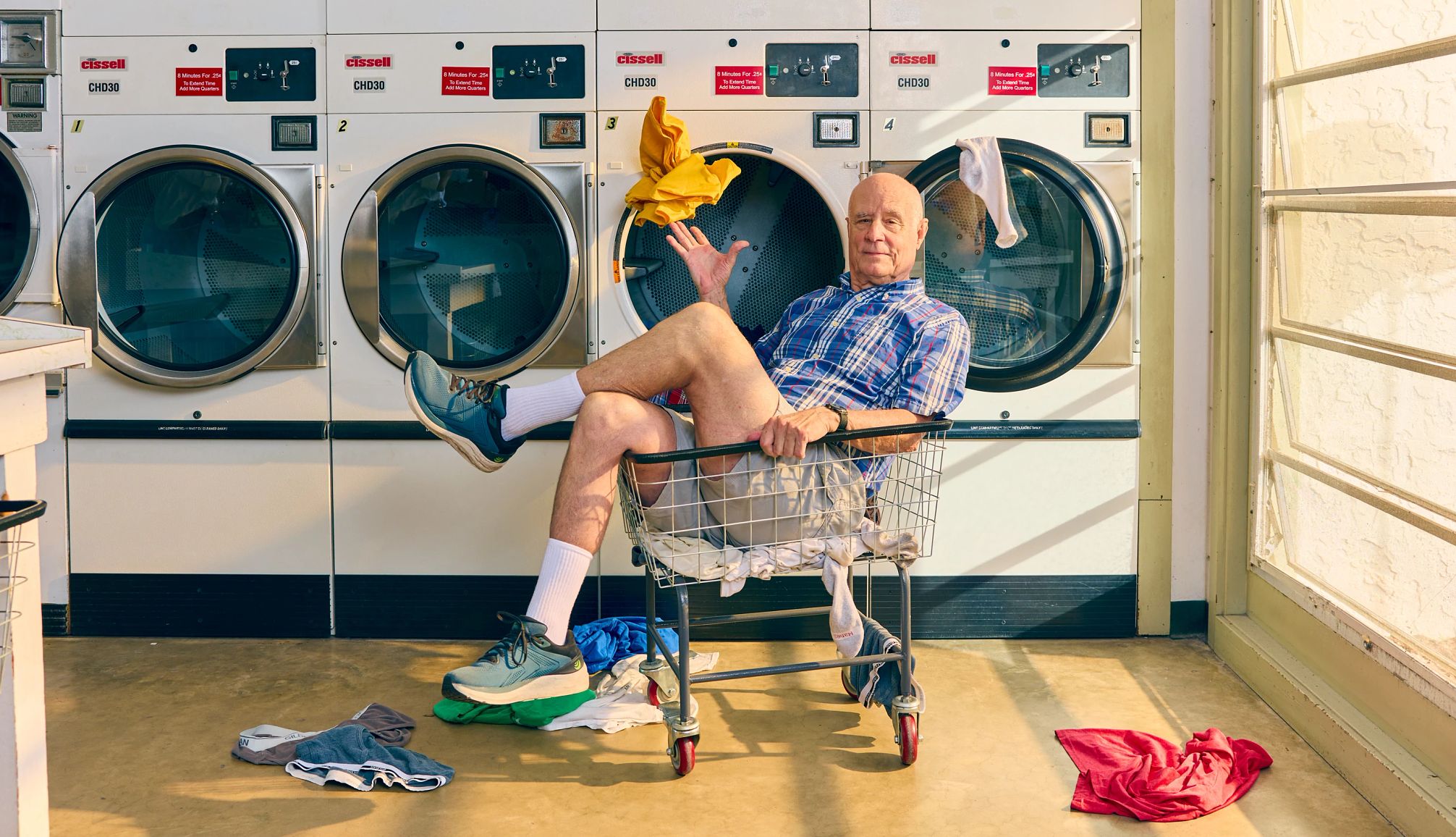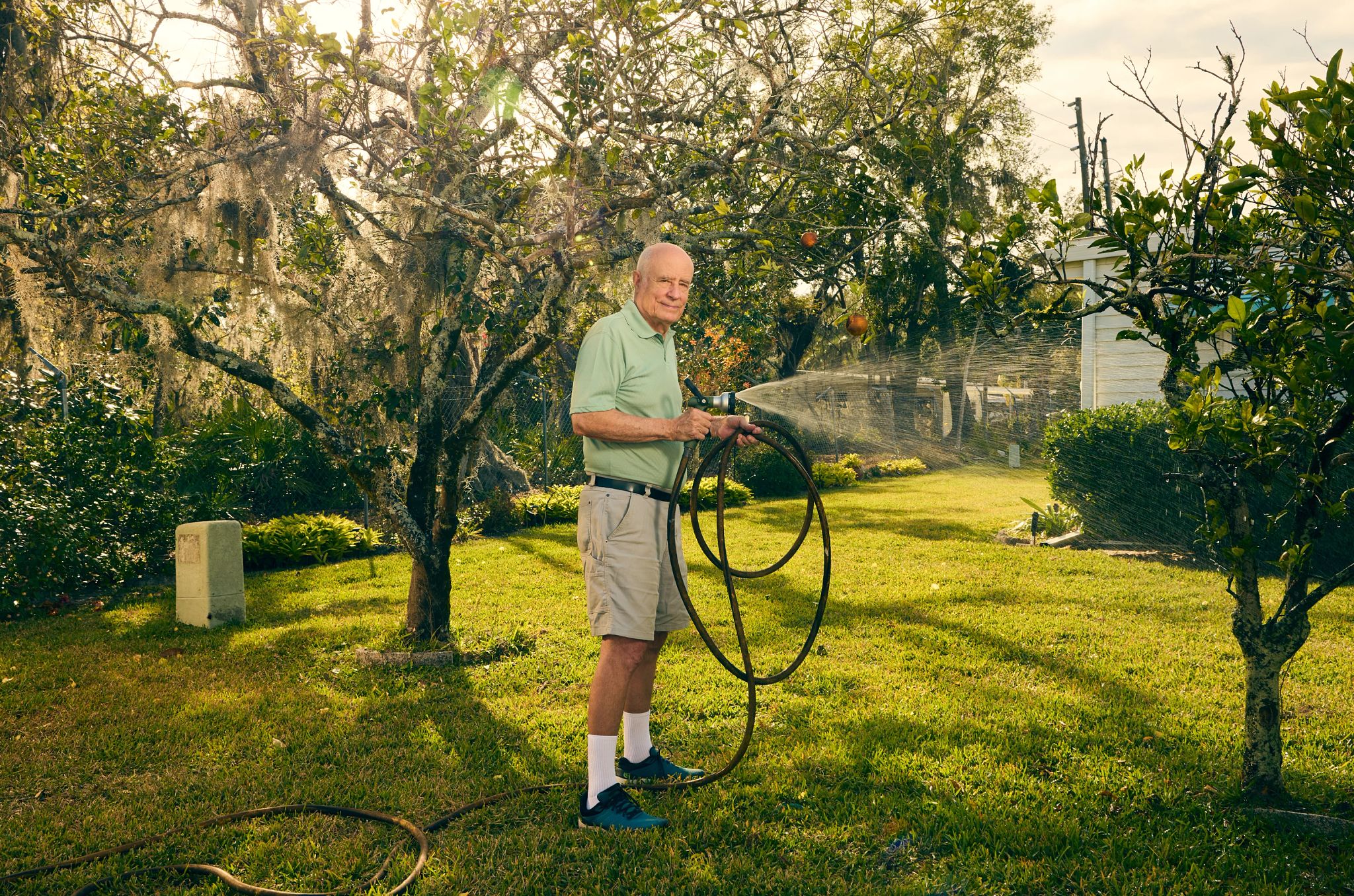AARP Hearing Center


It seemed like a good idea at the time. The time, after all, was early 2020, when America and the world were learning an unfamiliar word: coronavirus.
In February of that year, Richard Harr joined his son Ricky’s family on vacation at a Great Wolf Lodge in North Carolina. After a few days of riding the water slides with his 7- and 9-year-old grandsons, Richard accompanied the family back to Southern Pines, a small town west of Fayetteville, where they’d recently moved. He helped Ricky build a zipline and ground-level treehouse for the boys in the backyard.
“I was scheduled to be there for a week or so to visit,” recalls Richard, 79, a retired U.S. Air Force pilot and data specialist. But with COVID-19 spreading fast, a flight back to his Florida home was deemed too risky, and he ended up staying for a month.
The extended visit went well — so well that no one wanted “G-dad” (as the boys called Richard) to leave and ride out the pandemic alone. They decided he should move in for good.


What’s Your Biggest Retirement Mistake?
Retirement isn’t just about leaving a job. It's about changing your life — your routine, your budget, your priorities, where you live. It's decision after decision, and you don't always make the right one. Is there something you wish you’d done differently?
AARP Members Edition wants to hear about your retirement regrets. A mistimed exit from the office? A move to the wrong place? A relationship you gave up? Spending too much, or too little? Share your story at retirement@aarp.org and we might feature it in this series.
Richard went back to Florida and sold his house, and he put up $11,000 to outfit a bathroom at his son’s place with new tile and a stand-up shower. It was a commitment by Ricky and his wife to adjust their home to accommodate Richard’s needs as he aged. They were planning on living together for many years. They lasted three.
Carolina dreaming
As recounted by Ricky, Richard and Richard’s daughter, Patricia Bardin, the multigenerational arrangement was built on expectations and assumptions that turned out to be too rosy.
The family had figured the benefits of Richard moving in would cut both ways. Ricky was on active duty in the military and often deployed abroad; his dad could help with parenting chores like school pickups when he was gone and fill in for him coaching the kids’ sports teams.
At first, Richard says, he thought “everything was functioning very normally.” He was having fun coaching and spending time with his grandsons. Ricky fondly recalls time spent with his dad, going swimming at the city pool and boating on nearby Crystal Lake, with Richard teaching the kids to steer.
But as months passed, tensions emerged. Initially, everyone expected Richard would make friends in the area and have his own life, but he found that difficult in a town with a population of less than 17,000. “There’s a senior center that is about six miles away, and they have a lot of activities,” he says, “but I don’t consider myself a senior.”
With socializing still curtailed by the pandemic as well, Richard was always around. His son and daughter-in-law approached him in 2021 about going back to work so he’d have something to do outside the house. “So, I started doing the data work again,” he says, contracting with a company that installed phone and data-storage systems for businesses and government offices.






































































You Might Also Like
8 Ways to Transform Your Home for Multigenerational Living
Create news spaces for a caregiver or loved one moving in
My Biggest Retirement Mistake: Not Retiring Sooner
This retiree tacked on two more years of work for fear of outliving his savings. Now he regrets giving up time for money
My Biggest Retirement Mistake: Coming Out of Retirement | Members Only
Money was tight, but unretiring was bad for my health